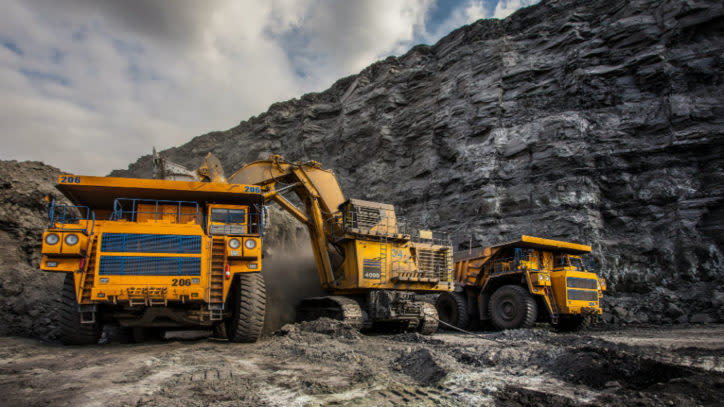3 Canadian Miners That Could Be Harshly Handled if a Trade War Erupts

Base metals in recent weeks, notably copper, have been hit hard by growing alarm of a trade war emerging, which economists believe will hamper global economic growth. That caused copper to recently slide to a 12-month low, as investors head for the exits, fearful that a trade war will bring the base metals bull run to an abrupt end.
While there are mixed signals relating to the outlook for commodities and metals in particular, the advent of a trade war, however, is fast becoming a harsh reality. This could severely interrupt economic growth in a global economy still recovering from the 2008 financial crisis, and where the loosening of national boundaries as well as the removal of trade barriers have been the norm since the end of World War II.
Now what?
The key driver of fears of a trade war is President Trump’s imposition of tariffs on $50 billion worth of imports from China as well as steel and aluminium shipments from the European Union and Canada. In return, those nations have reciprocated by slapping tariffs on a range of U.S. goods.
Even more alarming is that Trump has threatened to levy tariffs on as much as US$550 billion of imports from China if Beijing doesn’t accede to his demands. If that were to occur, a full-blown trade war would certainly erupt, and it could very likely spread like wildfire across the global economy as nations respond in turn.
This is bad news Canada’s miners, because China, which is the president’s primary target, is the world’s single largest consumer of raw materials and commodities aside from crude. China is known as the world’s workshop, because it is the largest manufacturing nation globally with that economic sector, according to consultancy Deloitte Global, being responsible for generating a third of its US$11 trillion annual gross domestic product.
Its manufacturing sector is highly dependent on exporting the goods it produces, because it lacks a large enough domestic market. This means that the majority of its products are consumed in developed nations, including the U.S., Japan, Germany and the United Kingdom. Because the U.S. is China’s largest export market, accounting for around 18% of all of its exports, Trump’s tariffs have the potential to severely disrupt its manufacturing sector.
Any reduction in manufacturing activity would trigger a sharp decline in the consumption of many metals, including steel, copper, zinc, nickel, and lead. This certainly isn’t good news for Canadian miners such as First Quantum Minerals Ltd. (TSX:FM), Teck Resources Ltd. (TSX:TECK.B)(NYSE:TECK), and Hudbay Minerals Inc. (TSX:HBM)(NYSE:HBM).
All three are dependent on mining copper and other base metals to generate a significant proportion of their earnings. In the case of First Quantum, copper sales are responsible for 90% of revenue, whereas for Hudbay it comes to 63%, and Teck generates 24% of its revenue from the orange metal.
Their exposure to the impact of a global trade war doesn’t stop with copper.
These miners also produce zinc, which is another important element used in many manufacturing processes. Teck earns roughly 25% of its revenue from zinc, while for Hudbay it is responsible for 22%, and First Quantum generates a mere 3% from the metal.
The impact on Teck’s earnings will be further exacerbated by its dependence on the mining of steel-making or coking coal, which produces just over half of its revenue. This is because China is also the world’s largest steel-consuming country.
So what?
A trade war, which, alarmingly, appears more and more likely, will sharply crimp global economic growth and hence the demand for commodities — notably base metals, which are an important element used in many industrial applications. This means their financial performances will come under increasing pressure, as Trump’s rhetoric intensifies, and Beijing responds in turn.
More reading
4 Great Investments That Will Provide You With Monthly Income
Free investor brief: Our 3 top SELL recommendations for 2018
Retirees: How You Can Earn $700 a Month in Dividends With Less Than $100k in Savings
Fool contributor Matt Smith has no position in any stocks mentioned.

 Yahoo Finance
Yahoo Finance 